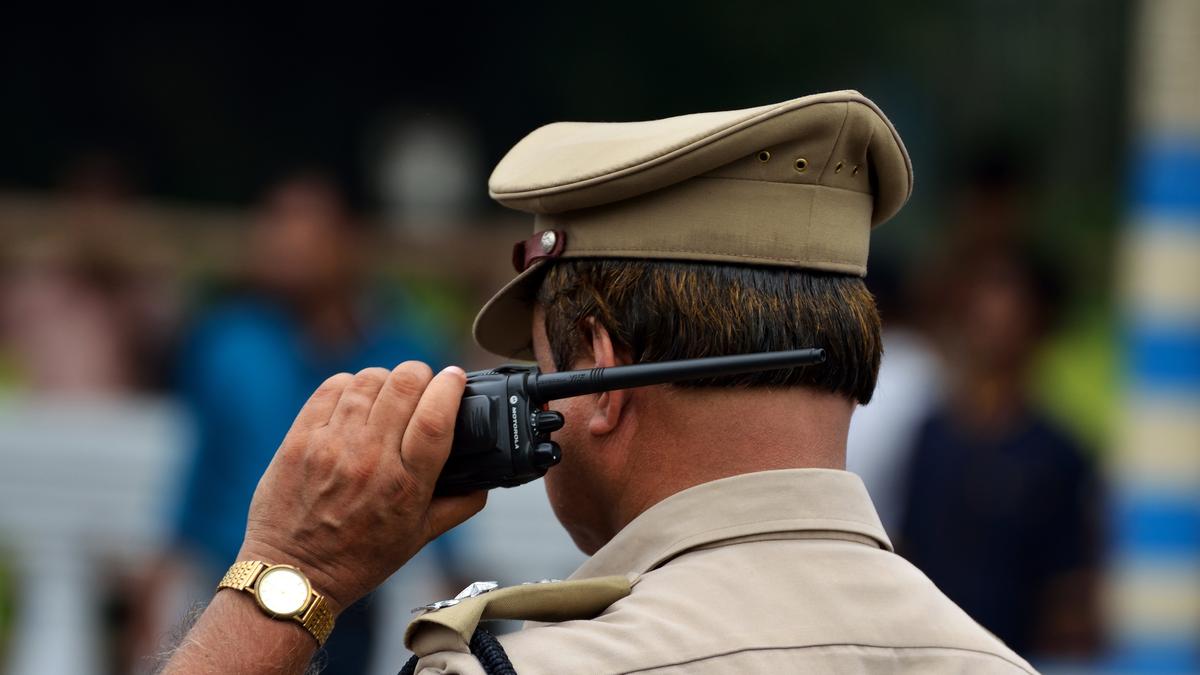
‘The focus inevitably shifts to the role of the police because they spearhead the process of criminalisation’
| Photo Credit: Getty Images/iStockphoto
Procedural law tends to receive less attention than substantive law in criminal law discussions. A major reason for this is that procedural criminal law is seen as dealing with the prosaic question of ‘how’, while the more dramatic question of ‘what’ crimes and punishments exist are associated with substantive criminal law. But, in reality, procedure is the beating heart of action. The recent Supreme Court of India ruling, in Imran Pratapgarhi vs State of Gujarat, is a reminder of how principled criminalisation is contingent on the adherence of the police to India’s criminal procedure law, the Bharatiya Nagarik Suraksha Sanhita (BNSS).
A straightforward way of thinking about criminalisation is in terms of the exercise of state power and duty. Criminalisation is about the state’s power to name a wrong/harm as ‘crime’ and impose ‘punishment’. It is, equally, about the state’s duty to address wrongdoing by holding individuals accountable publicly and administering appropriate penalties. Criminal law in a constitutional democracy seeks to ensure that this enormous authority and responsibility is exercised properly.
Legal philosopher Victor Tadros suggests that the state’s duty/power to criminalise wrongful conduct is part of a larger complex duty/power to criminalise, prosecute, convict, publicly condemn and punish the conduct. Within the broader normative context, criminalisation exists as part of social institutions and practices that address wrongdoing, such as families and private law. The claim, therefore (and importantly), is that criminalisation has a role independent of its effects that can be realised through the operations of the criminal law.
The basis
That said, the full force of criminalisation depends on criminal law and the workings of the criminal justice system. Given the powerful symbolic and concrete effects of criminalisation, legal scholars have sought to identify one (or more) ‘master principle(s)’ on the basis of which the kinds of behaviours that should be criminalised can be satisfactorily decided. Tatjana Hörnle makes a cogent case for three principles: conduct should be criminalised only if first, it is incompatible with important collective interests, second, it constitutes a violent attack against other persons, and third, it violates another person’s right to non-intervention. These principles can be seen at the core of criminalisation under India’s substantive criminal law, the Bharatiya Nyaya Sanhita (BNS).
Even if the substantive criminal law structures criminalisation in accordance with pragmatic and restrictive principles, some social groups and behaviours can be over-criminalised and others under-criminalised.
This is because beyond the conceptual labelling lies the actual labelling of acts and individuals as ‘crime’ and ‘criminal’ through the process of detecting, recording, arresting, charging, prosecuting, convicting and sentencing. Therefore, it is essential to pay equal, or possibly more, attention to the powers and functions of criminal justice agencies under the procedural law that governs the process.
The police as the focus
In this context, the focus inevitably shifts to the role of the police because they spearhead the process of criminalisation by detecting, registering, investigating crime, and, most conspicuously, by arresting suspects. There is general consensus that the police exercise considerable discretion in their daily work. As a result, the nature and the extent of criminalisation is largely shaped by how this discretionary authority is regulated and used. A case in point here is the possibility of overzealous policing of non-harmful wrongdoing (minor infractions) deflecting attention from harmful wrongdoing (serious offences).
A key provision in the BNSS is Section 173(3), which ostensibly confers more discretion on the police to decide which cases to investigate, but should actually be viewed as directed towards preventing unnecessary criminalisation due to police overreach.
Under the provision, when the officer in charge of a police station receives information relating to the commission of a cognisable offence punishable for three years or more but less than seven years, they need not immediately register a First Information Report (FIR) and investigate. Rather, they have the option to conduct a preliminary inquiry within 14 days to check whether a prima facie case exists to proceed in the matter.
The case in question
In Imran Pratapgarhi, the Court has interpreted such a preliminary inquiry as a positive obligation on the police where an offence covered under the provision is allegedly committed in the exercise of the fundamental right to freedom of speech and expression guaranteed by the Constitution. The Court quashed a first information report against Mr. Pratapgarhi, a Member of the Rajya Sabha, for posting what was alleged to be an inflammatory poem on a social media platform. The Court found that the police had gone overboard by launching an investigation without complying with the provision that enables them to first conduct a preliminary inquiry. Referring to Section 173(3), the judgment notes that ‘[t]he intention appears to be to prevent the registration of FIRs in frivolous cases….’
Principled criminalisation is no doubt central to the legitimacy of the state’s power to criminalise. Also, it is as crucial for substantive law to be defined by judicious principles as it is for procedural law to be able to control the actual effects of criminalisation. But none of this works unless the police show a commitment to responsible criminalisation and are held accountable.
Pupul Dutta Prasad is an IPS officer with a PhD in Social Policy from the London School of Economics and Political Science. He is currently working as Professor of Practice, Lloyd Law College, Greater Noida, on deputation. The views expressed are personal
Published – May 15, 2025 12:08 am IST
